The UN High Seas Treaty has officially received over 60 ratifications and will become international law in January 2026.
Photo/Ocean Image Bank/Grant Thomas
Historic UN High Seas Treaty approved as new era of global ocean protection begins
More than 60 nations have ratified the agreement which means new safeguards will be possible for international waters for the first time.


Funding sought to sustain Pacific-led youth and cultural revival in Manurewa

Pageant talk: Pacific queens on colourism, transparency, and online backlash

Arrest of dual British Fijian national sparks free speech concerns


Funding sought to sustain Pacific-led youth and cultural revival in Manurewa

Pageant talk: Pacific queens on colourism, transparency, and online backlash

Arrest of dual British Fijian national sparks free speech concerns
A landmark agreement to protect our oceans, known as the United Nations High Seas Treaty, has been officially approved and is set to become international law.
The treaty comes amid the 80th Session of the UN General Assembly in New York, attended by global leaders and government representatives, including New Zealand's Foreign Minister, Vaovasamanaia Winston Peters.
The agreement is a major step forward for safeguarding the health of the world's oceans for the first time.
The High Seas Treaty, also called the Biodiversity Beyond National Jurisdiction (BBNJ) Agreement, reached over 60 ratifications on the weekend, a requirement for it to take effect, officially from 17 January 2026.
The important agreement introduces new measures to protect the wildlife in the deep ocean. It also creates legal obligations for countries to maintain high environmental standards when managing ocean resources.
This is important because it applies to international organisations that oversee ocean activity, like the International Seabed Authority (ISA) and regional fisheries management groups.

The UN General Assembly in New York. Photo/International Union for Conservation of Nature
A key aspect of the treaty is the establishment of Marine Protected Areas in international waters. This means certain parts of the ocean will be set aside for protection, and there will be a requirement to assess the environmental impact of any activities in these areas.
The treaty also encourages nations to cooperate internationally, ensuring fair access to ocean resources, sharing benefits from the ocean, and supporting the development of marine technology in poorer countries.
Ambassador Rena Lee, who leads the treaty's discussions, celebrated the achievement, highlighting the importance of including all countries in efforts to protect shared ocean spaces.
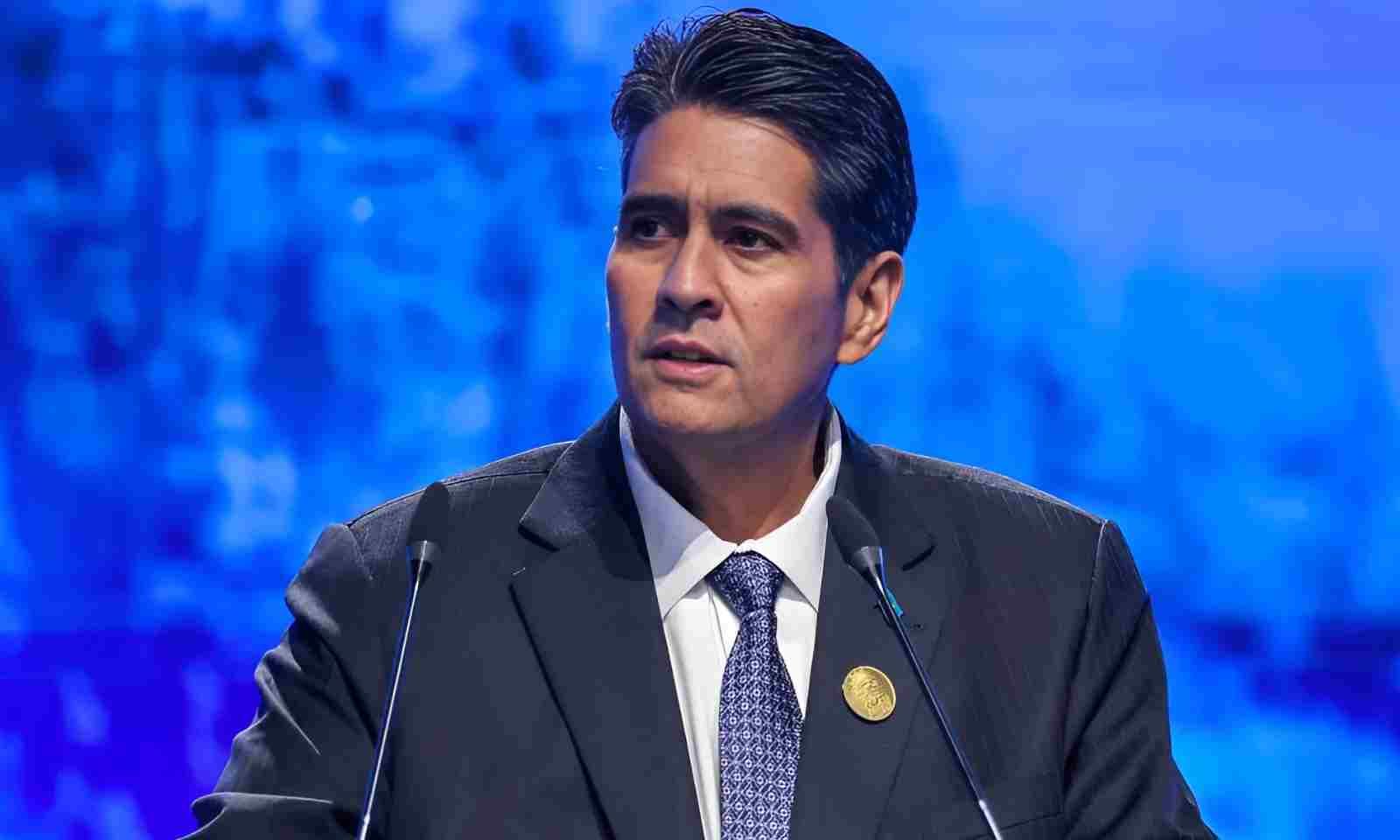
Palau's President Surangel S Whipps Jr says he is proud of the island nation being the first country to ratify the High Seas Treaty. Photo/Supplied
"This is a critical milestone for the ocean. I congratulate all who have ratified the BBNJ Agreement, which covers the global commons, so we must continue to be inclusive and strive for universal participation."
Palau was the first country to ratify the treaty on 22 January 2024, and President Surangel S Whipps Jr says the achievement highlights the island nation's pride in its role and the collective commitment of countries to protect ocean biodiversity and fight climate change.
“We are proud to ratify the BBNJ Treaty, and we celebrate alongside 60 other countries who have joined us in this global commitment," Whipps says.
"With 60 ratifications, the treaty will now enter into force, ushering in a new era of stewardship for the High Seas. Together, we are protecting marine biodiversity, advancing climate action, and ensuring that our ocean remains healthy and resilient for generations to come.
"This is not just a victory for the ocean, it is a victory for our planet and all who depend on it. Healthy oceans, healthy planet," the Palauan leader says.
Dr Grethel Aguilar, head of the International Union for Conservation of Nature (IUCN), says the treaty reflects what the world can achieve when countries come together for the benefit of the oceans.
In a statement, Aguilar says that protecting the High Seas is important for meeting global climate goals and biodiversity targets.
"The IUCN is proud to host the secretariat for the BBNJ High Ambition Coalition, to continue the political momentum beyond ratification to ensure equitable and fair implementation," she says.
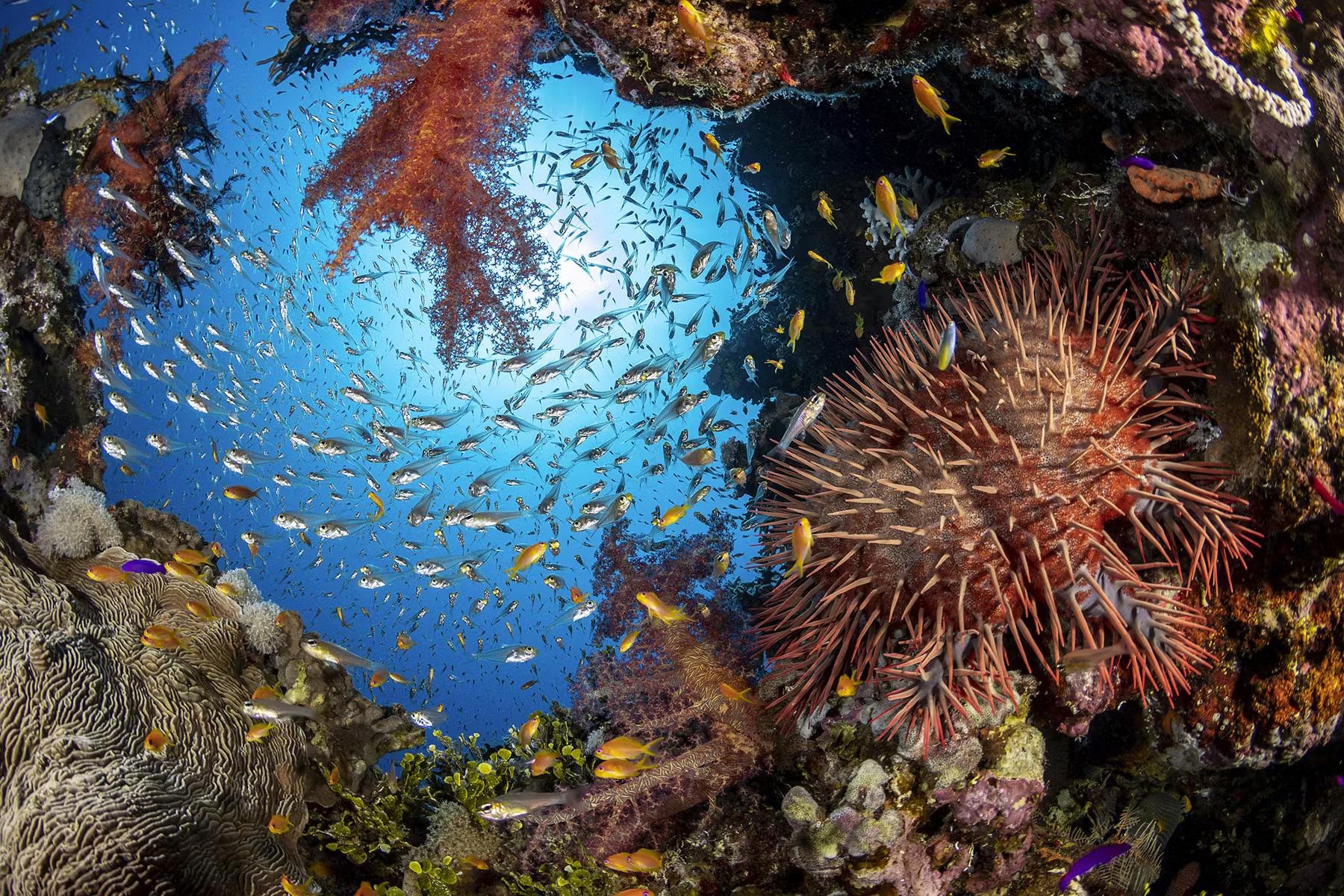
Photo/Ocean Image Bank/Renata Romeo
“Protecting the High Seas is essential for meeting our climate targets and fulfilling our goals under the Global Biodiversity Framework, which aims to protect at least 30 per cent of the ocean by 2030.”
But some organisations, like the Deep Sea Conservation Coalition (DSCC), warn that harmful activities such as deep sea mining and destructive fishing can undermine the treaty's goals.
They urge governments to take swift action to protect vulnerable areas of the ocean from these threats.
The overall message is clear: the High Seas Treaty represents a new opportunity for global cooperation in ocean conservation.
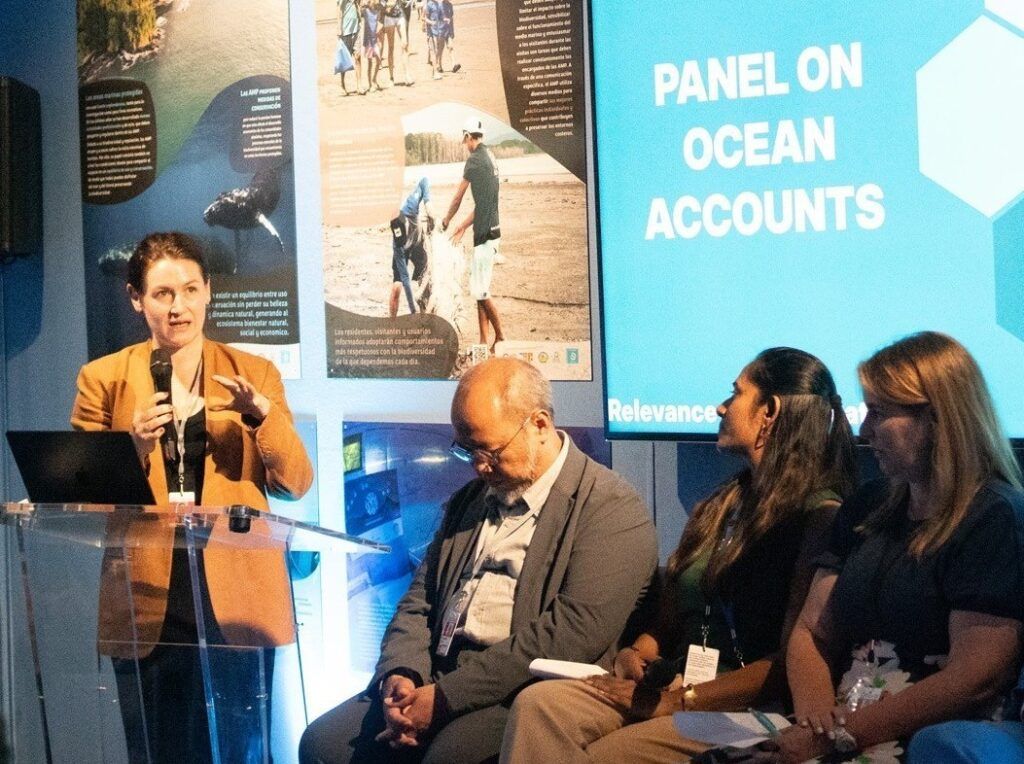
Eliza Northrop, the Director of the University of New South Wales’ Centre for Sustainable Development Reform, addresses a panel on Ocean Accounts in Sydney. Photo/UNSW
But for it to be truly effective, advocates say that governments need to act decisively, avoid destructive practices, and prioritise the health of our oceans for future generations. The health of our planet depends on it, they say.
The UN General Assembly ends on 28 September.